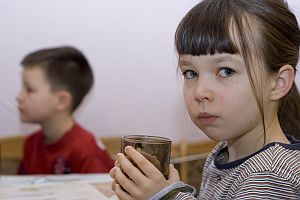Are Energy Drinks Actually Dangerous?

There’s no doubt that many of us live very fast-paced lives. “Too much to do in too little time…” It’s this common complaint that’s helping to drive the popularity of energy drinks. After all, who couldn’t use a little boost to help get through another busy day? And it’s not only adults who are fueling the craze. Teenagers are among the biggest users of energy drinks when they need to be awake for morning classes after staying out late or studying all night.
So what’s the problem? Energy drink-related visits to the emergency room have doubled over the past four years, and most of these cases have involved teens and young adults.
Energy drinks such as Red Bull, Monster, Full Throttle and Rock Star are starting to attract the attention of medical researchers and public health officials alike. This is leading to some troubling discoveries about what the ingredients in these drinks can do to our bodies. It’s also putting a spotlight on how these products are marketed. It turns out that energy drinks—unregulated and usually sold right alongside soft drinks in the supermarket—may be dangerous for our health.
What’s in the can? In addition to large amounts of caffeine and sugar, other ingredients commonly include taurine, glucuronolactone and guarana, as well as B-vitamins and a variety of herbal supplements such as ginseng, milk thistle and gingko biloba. The primary concern so far is the effect the combined stimulants in these drinks have on the heart. A typical energy drink contains up to three times as much caffeine as an equivalent amount of coffee or soda.
Energy drinks have been shown to produce arrhythmias (which are potentially life-threatening changes in your heart rhythm) and to raise blood pressure. Heart palpitations, seizures and sudden death can be caused when someone with an arrhythmia consumes an energy drink.
A study conducted by Dr. Jonas Dorner and colleagues from the University of Bonn in Germany found that energy drinks increase heart contractions. Dorner said “Until now, we haven’t known exactly what effect these energy drinks have on the function of the heart. There are concerns about the products’ potential adverse side effects on heart function, especially in adolescents and young adults, but there is little or no regulation of energy drink sales.”
The study involved 18 healthy volunteers, most of whom were male, who consumed an energy drink containing caffeine and taurine. They underwent an MRI an hour after taking the drink, and the results showed a significant increase in peak strain in the left ventricle of the heart.
Although these results may not cause problems in the short term for those who are young and healthy, these drinks may be a problem for anyone with heart disease. There are also no studies yet measuring the long-term effect that these energy drinks have on heart health.
Experts advise that children and anyone with a heart condition such as arrhythmia avoid consuming energy drinks due to the potential risks they pose.
